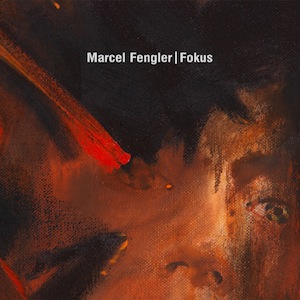Marcel Fengler Fokus
Berghain resident Marcel Fengler‘s debut album, Fokus, inverts the polarity of his singles. This isn’t […]

Berghain resident Marcel Fengler‘s debut album, Fokus, inverts the polarity of his singles. This isn’t an innovative move in itself—the expansive medium seems to demand it. But in his hands, the results are particularly rewarding. Instead of leading with sounds immediately recognizable as techno and letting his personality emerge between the hits, Fengler leisurely builds tracks up around darkly reverberant atmospheres. From the sound of an early track like “Mayria,” one would guess that Fengler has been listening closely to the likes of Demdike Stare and Old Apparatus. The rhythm is mercilessly tough, grittily lo-fi, and yet more spacious than anything on last year’s appropriately titled and differently excellent Frantic EP. Adding to the atmosphere are disembodied wails and uncomfortably sustained horror-soundtrack strings, which keep the walls from closing in. The shapes that emerge from the album’s numerous open spaces are often uncannily human—this is a descent into Fengler’s own personal inferno, midway between the concussive bodily force of Berghain and the artificial paradises of raw, intoxicating sound design.
Setting aside the negative connotations of the term, Fokus is at times a threadbare record, and Fengler is audibly delighted to be reduced to the essential. While prizing nuance over function can sometimes lead musicians down a self-indulgent road, Fengler’s resume ensures a measure of aesthetic discipline. Fokus is a voluptuous experience, a kind of opium den where the listener is content to be glued to the floor. “Distant Episode” has the narcotic slippage of an Actress cut, with unpredictable claps over hazy samples always slipping out of time—it’s techno at its least practical, but it’s enough just to follow its irregular breaths. “Jaz” could be Fengler’s take on Gavin Bryars’ “The Sinking of the Titanic,” zooming in on a slow orchestral procession, its vagueness contrasted with watery tremolo synths stuck into it like pins. The contrast between its scampering forward motion, a distant relative of UK garage, and the oceanic pull of the strings inspires the same kind of natural awe we feel watching time-lapse footage. It moves quickly, but the mind deduces its essential slowness. On the more aggressive side, “King of Psi”‘s dumpster snares—or are they pitched-down gunshots?—practically slam against the listener’s face. The track comes on like ripped techno, but it’s Fengler’s experimentation with the way the trebly bells and gurgling synth fit together that really drives the composition.
Fokus is in its own world. Structurally, it comes from further outside the house than “outsider house,” and its chemical flumes are more genuinely industrial than a lot of today’s “industrial techno.” Fengler was once the least discussed of the Berghain residents; that’s changed leading up to Fokus, but the album is still loaded with low-stakes, high-yield adventures—it’s the kind of effort one might expect from an artist operating without anyone else’s imperatives to follow. As surprising as it can be, Fokus never abandons Berghain’s merits entirely, but neither does it score easy points off its nonconformity.

